Tourism Board Briefs Parliamentary Committee on Sectoral ChallengesWednesday, July 2nd, 2025
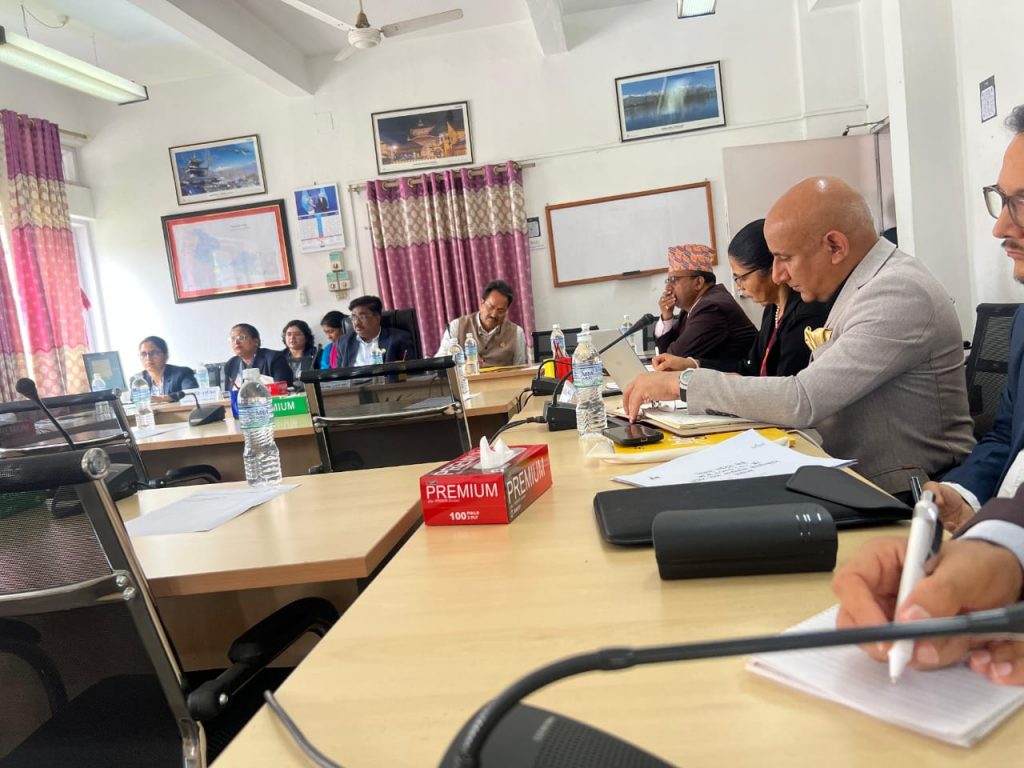
Kathmandu — The Nepal Tourism Board (NTB) has briefed the International Relations and Tourism Committee under the House of Representatives on the challenges and issues facing Nepal’s tourism sector.
During a meeting held on Wednesday at the committee hall in Singha Durbar, Deepak Raj Joshi, NTB’s Chief Executive Officer (CEO) presented an overview of Nepal’s current tourism status, annual progress, future strategies, and existing challenges.
CEO Joshi stated, “In the current fiscal year 2081/82 (2024/25), we have generated revenue of NPR 933.5 million. For the upcoming fiscal year 2082/83 (2025/26), we have set a revenue target of NPR 1.32 billion.”
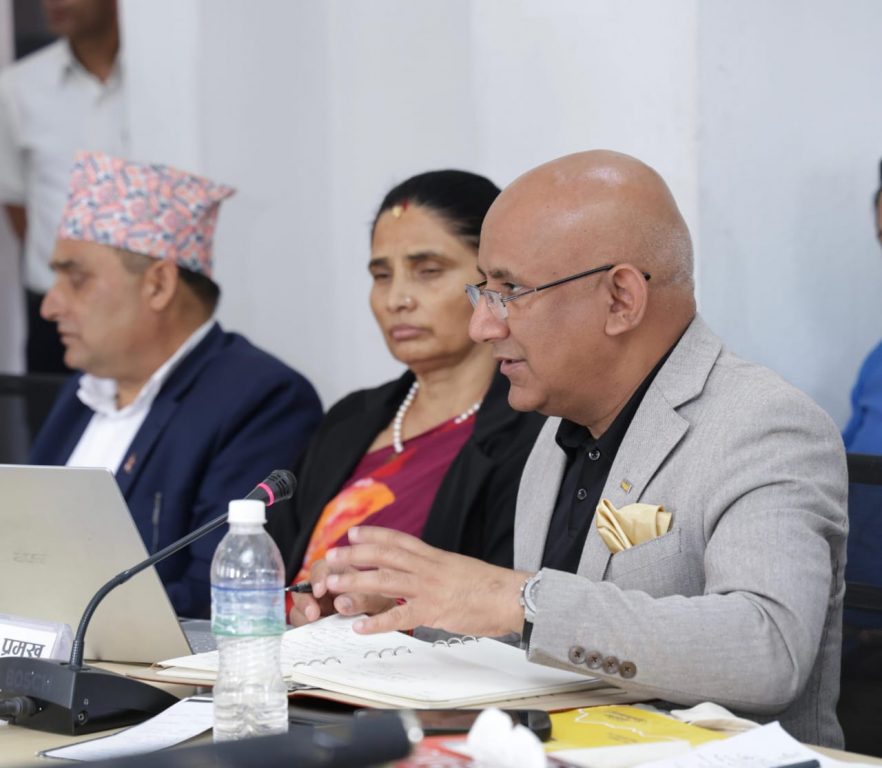
He informed the committee that NTB has participated in 25 international tourism fairs across cities in the USA, Europe, China, India, Bangladesh, Southeast Asia, and the Middle East to promote Nepal’s tourism. Over 333 Nepali tourism businesses took part in these fairs to promote Nepal’s tourism products and services.
Additionally, in collaboration with Nepali embassies abroad, the Board organized 15 destination promotion programs, enhancing the role of diplomatic missions in supporting sustainable tourism development in Nepal.
The Board has implemented programs such as the “45 Destination Standardization Program,” along with homestay management, hotel management, trekking, rafting, nature guide training, language training, package development, and digital marketing training. CEO Joshi highlighted that these initiatives also contribute to tourism workforce development.
Local events organized across Nepal — such as cultural festivals, food festivals, and adventure tourism celebrations — have played a role in promoting domestic tourism. He also mentioned special promotional campaigns targeting Indian tourists during the Kumbh Mela.
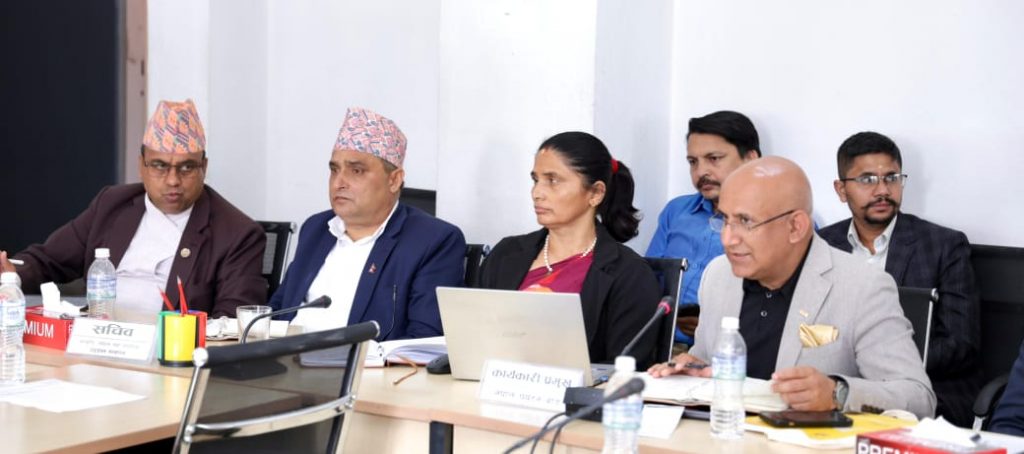
Joshi further outlined structural and systemic challenges that persist in Nepal’s tourism development. “The main issues include inadequate basic infrastructure, lack of clear destination promotion strategies, shortage of skilled workforce, concerns over health and safety, seasonal tourism trends, institutional sustainability gaps, policy instability, and a lack of quality tourism products,” he said.
He also emphasized the need to closely monitor emerging global competition and changing tourist psychology. NTB aims to rebrand Nepal as “the world’s most experiential and memorable destination.”
To achieve this, NTB has adopted strategic pillars such as increasing demand in Asian markets while sustaining traditional ones, enhancing digital capabilities, encouraging quality investment, diversifying destinations, improving tourism products and regulations, expanding labor, skills, and provincial participation, improving resilience, productivity, and quality of the industry, ensuring environmental responsibility and sustainability, and unlocking provincial tourism potential.
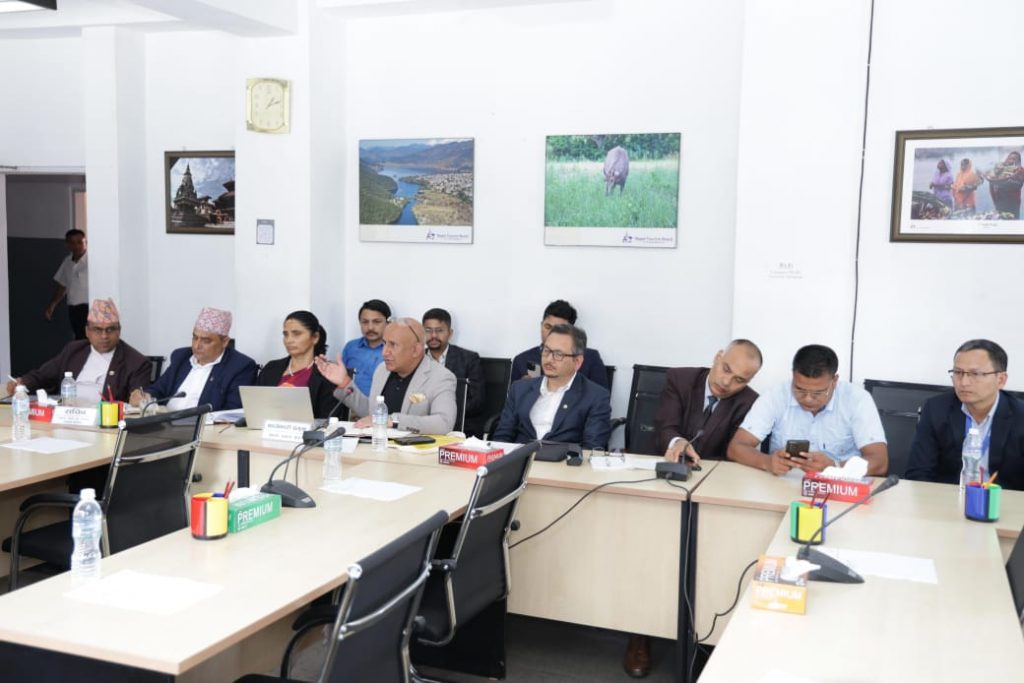
Under the “Tourism Road Infrastructure Program,” NTB has identified the need to improve key routes such as Kathmandu–Pokhara, Narayanghat–Butwal, Dhulikhel–Ramechhap, Rasuwa–Kerung, and Butwal–Palpa–Pokhara. The Board also aims to improve aviation services, including facilitating direct international flights, easing helicopter operations, maximizing the use of Gautam Buddha and Pokhara International Airports, and promoting air sports.
According to the Board’s long-term vision, Nepal aims to attract 2.5 million international tourists annually, create 1.4 million jobs, and generate tourism revenue of NPR 250 billion in the coming years.
During the meeting, Minister for Culture, Tourism, and Civil Aviation, Badri Prasad Pandey, appreciated the efforts made by the Tourism Board and assured that the ministry is working toward policy and structural reforms. He stressed the importance of gaining the trust of the private sector to boost investment in tourism, stating, “We are working to facilitate the private sector through the Tourism Board. They are confident and motivated by this facilitation. The Tourism Board also acts as a think tank and will move ahead more strategically.”
Likewise, committee members NP Saud, Uday Shamsher Jabra, Dhawal Shamsher Rana, Prem Suwal, Bhim Acharya, and Shishir Khanal, among others, expressed their commitment to supporting the resolution of challenges in tourism promotion.
Committee Chairperson Rajkishor Yadav urged the Board to prioritize its issues and assured that the committee would draw the government’s attention to reform procurement regulations, improve infrastructure development, and ease road and air transportation systems.
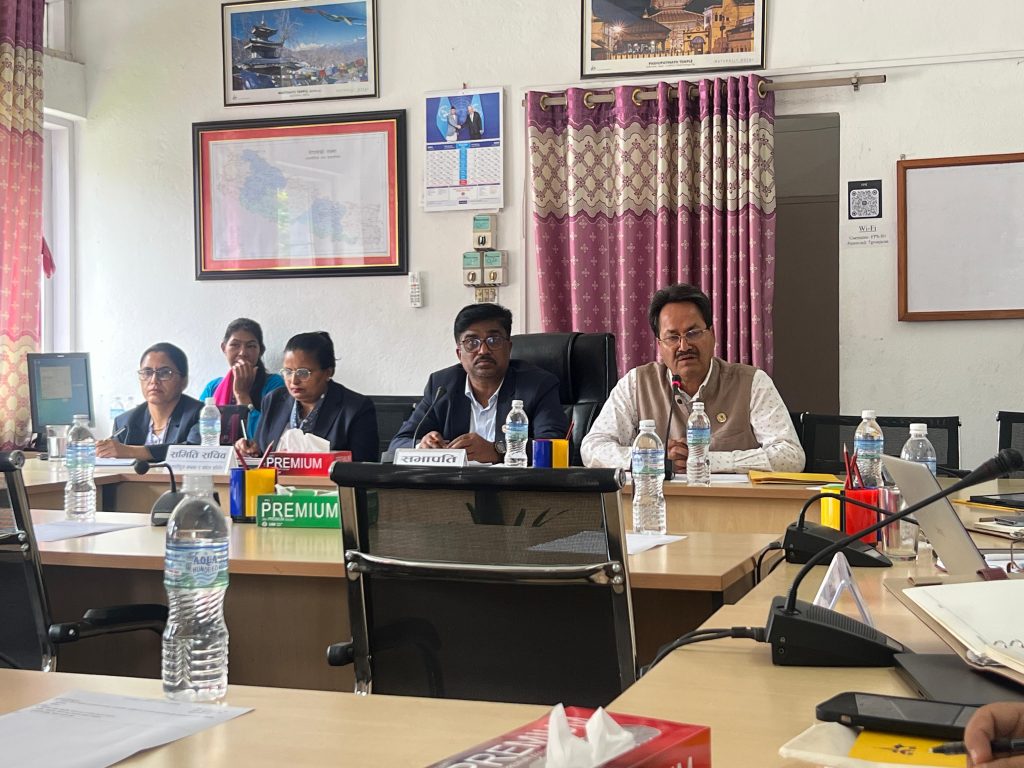
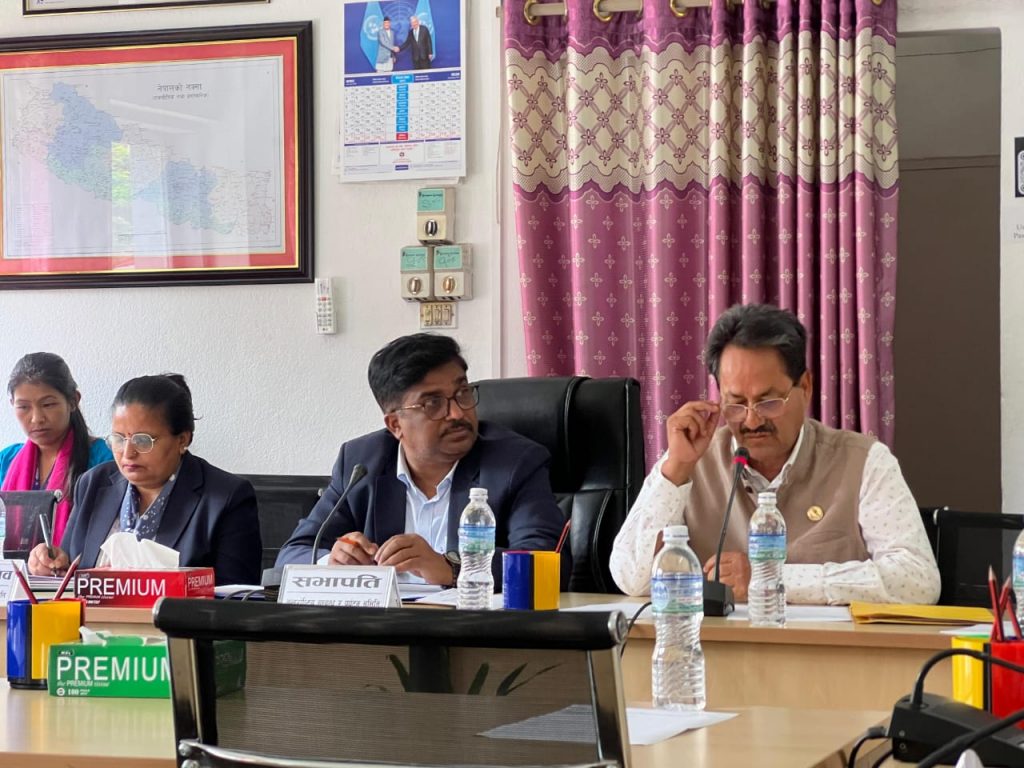
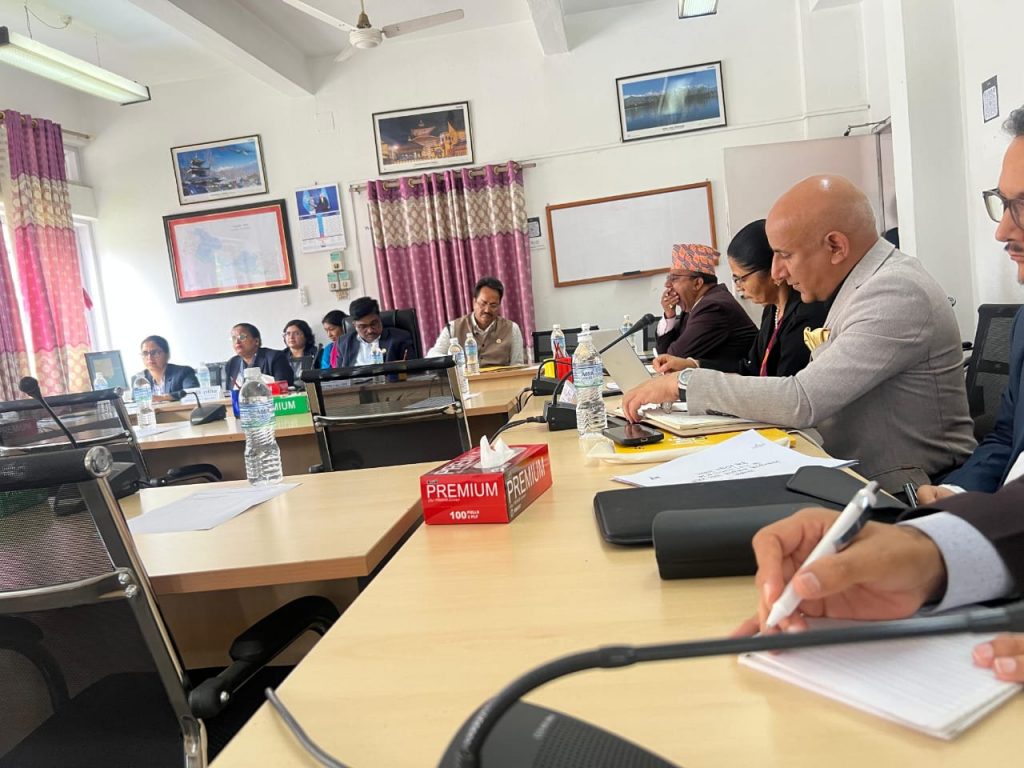
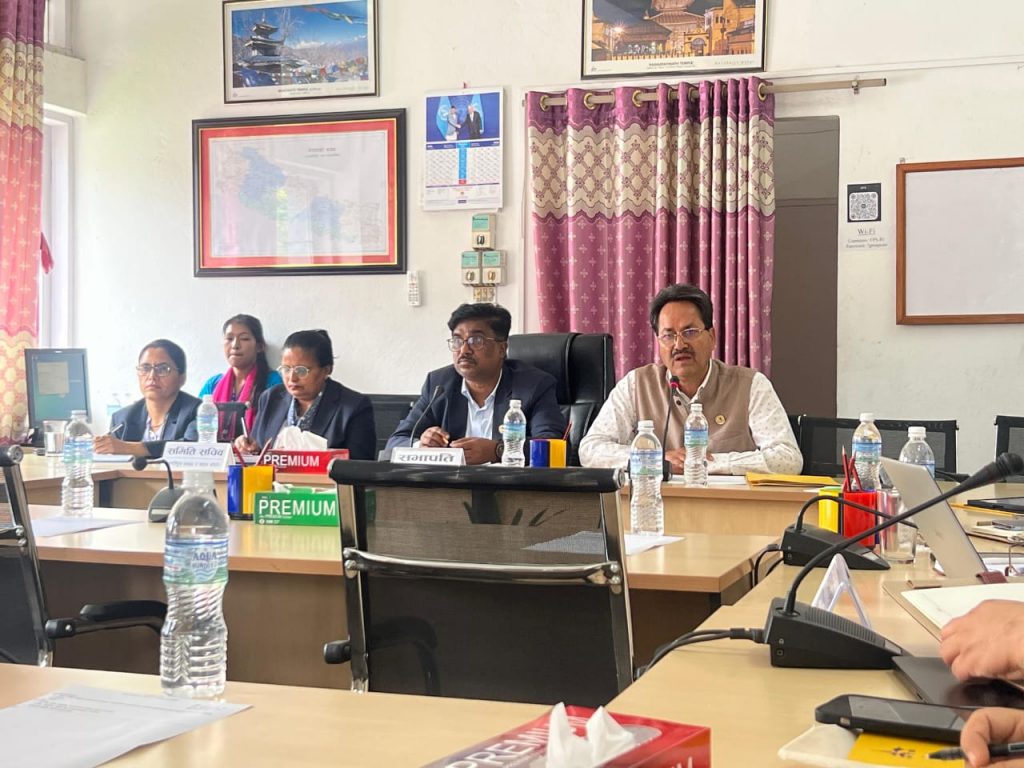
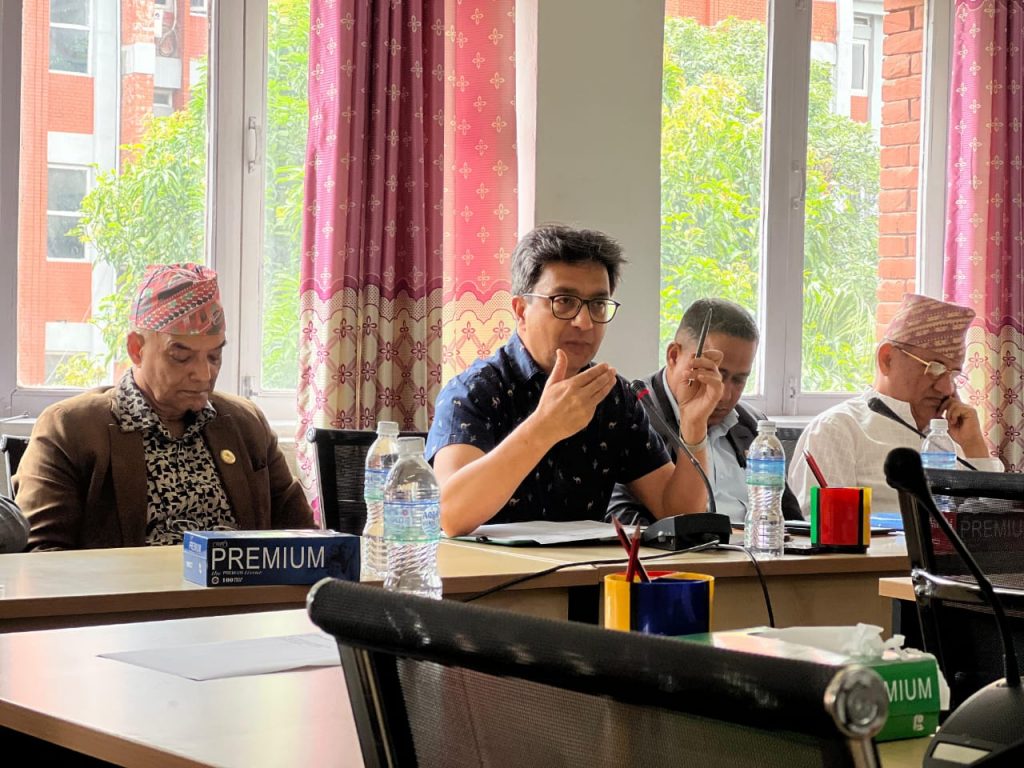
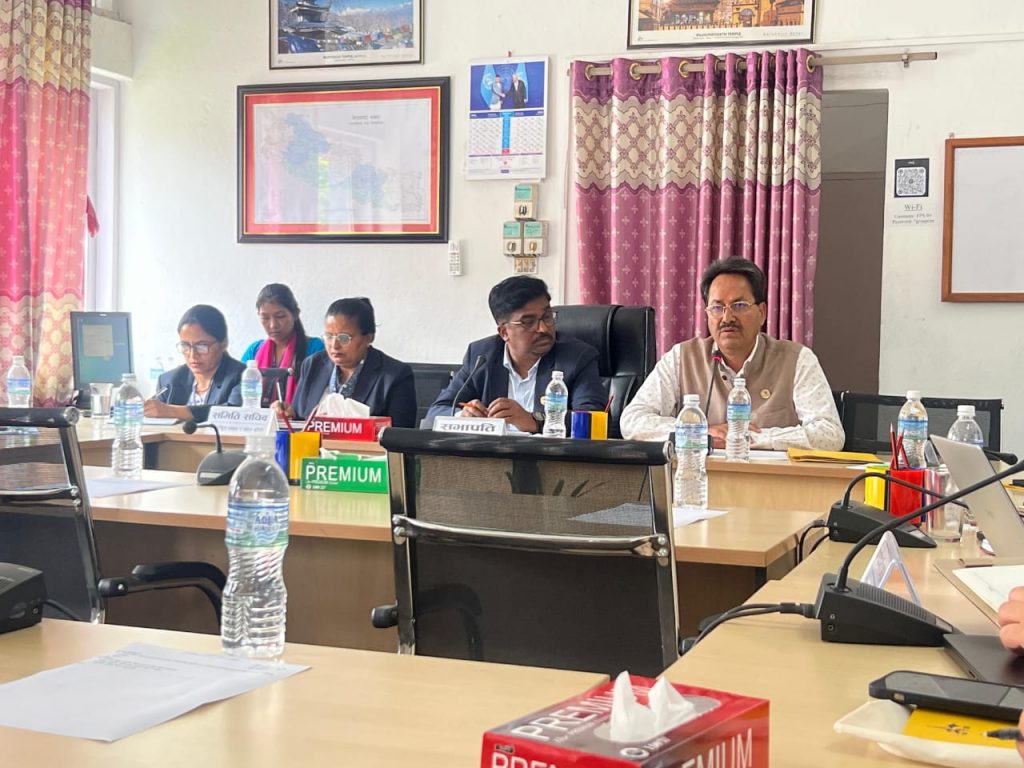
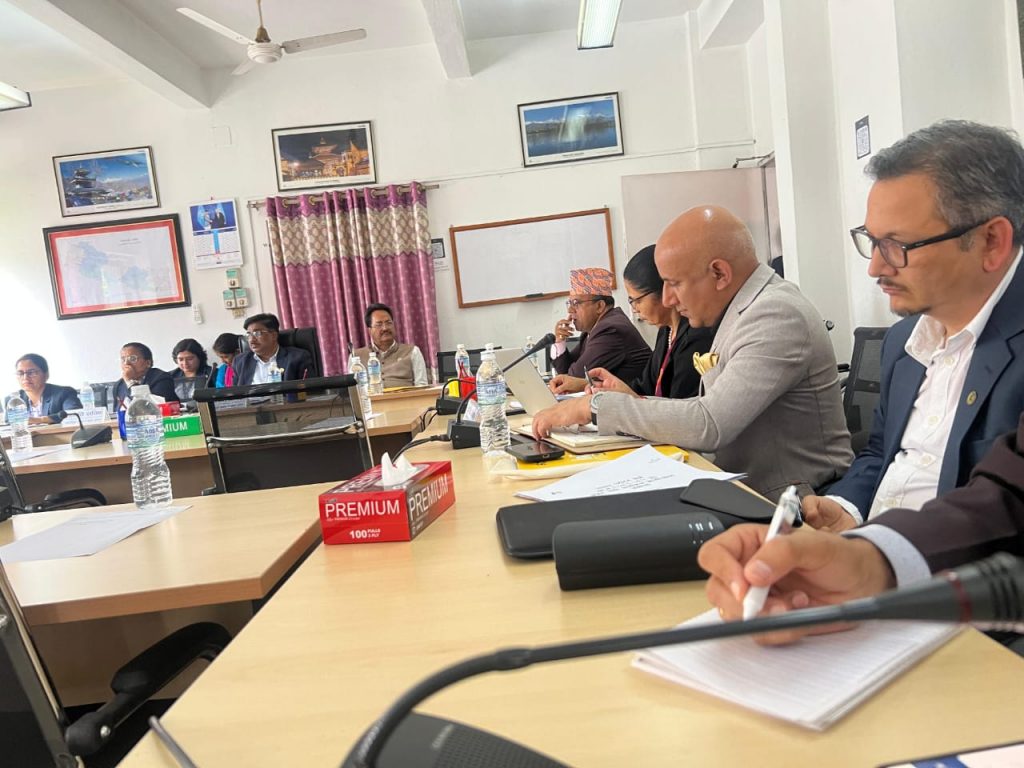
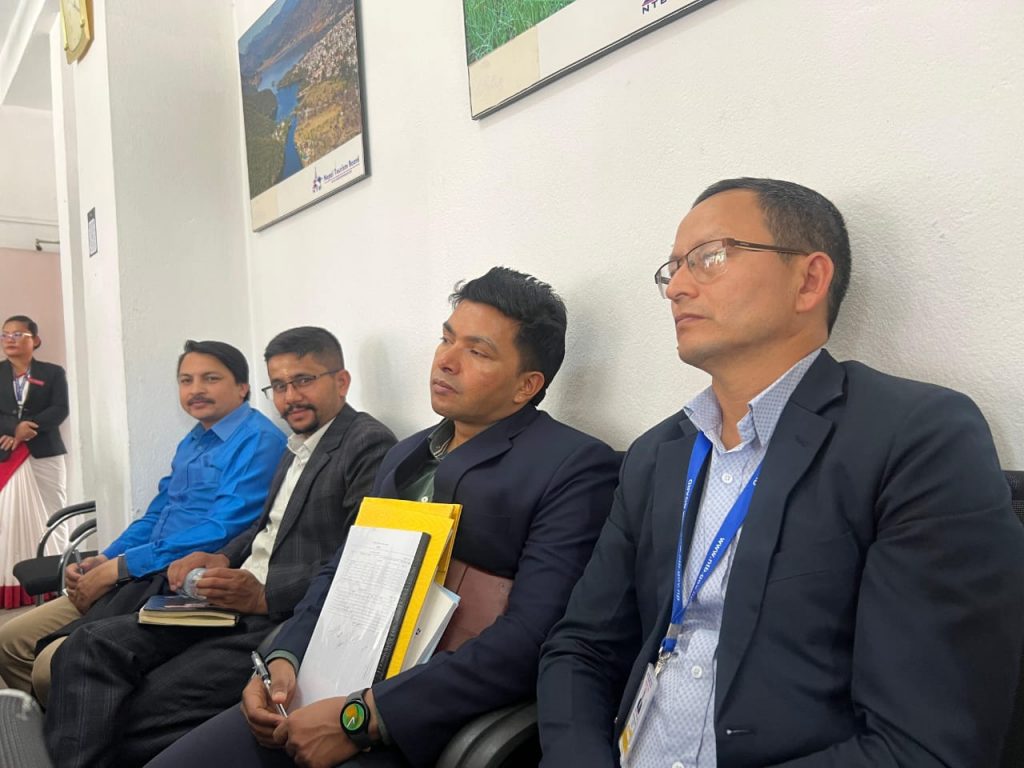
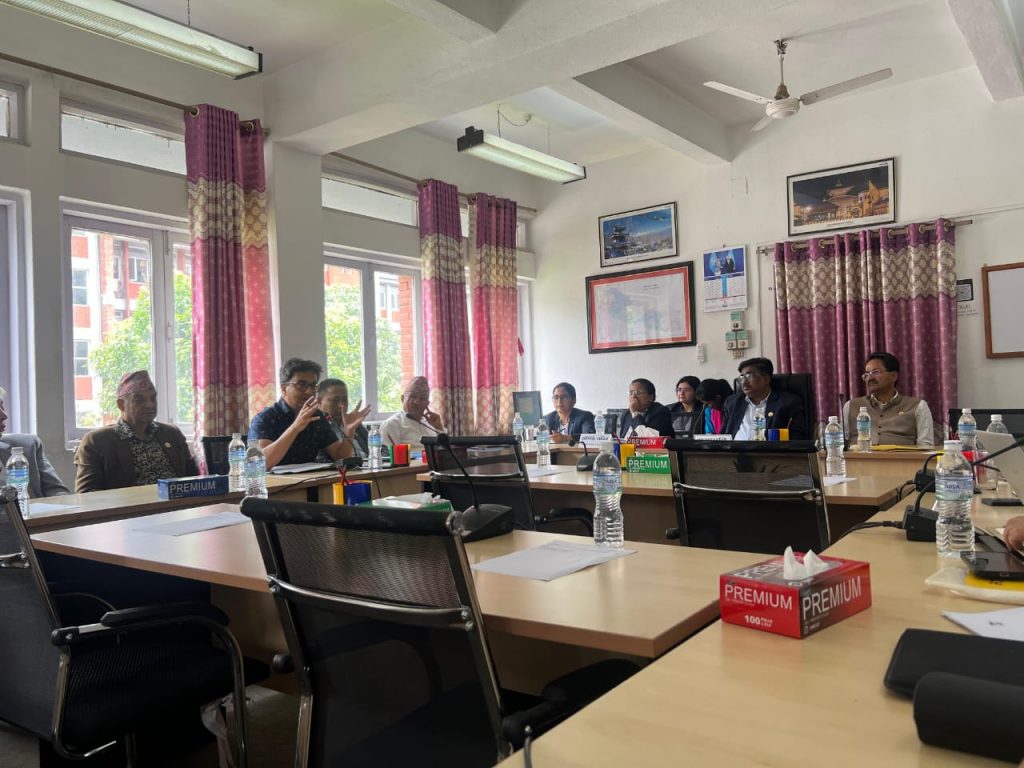
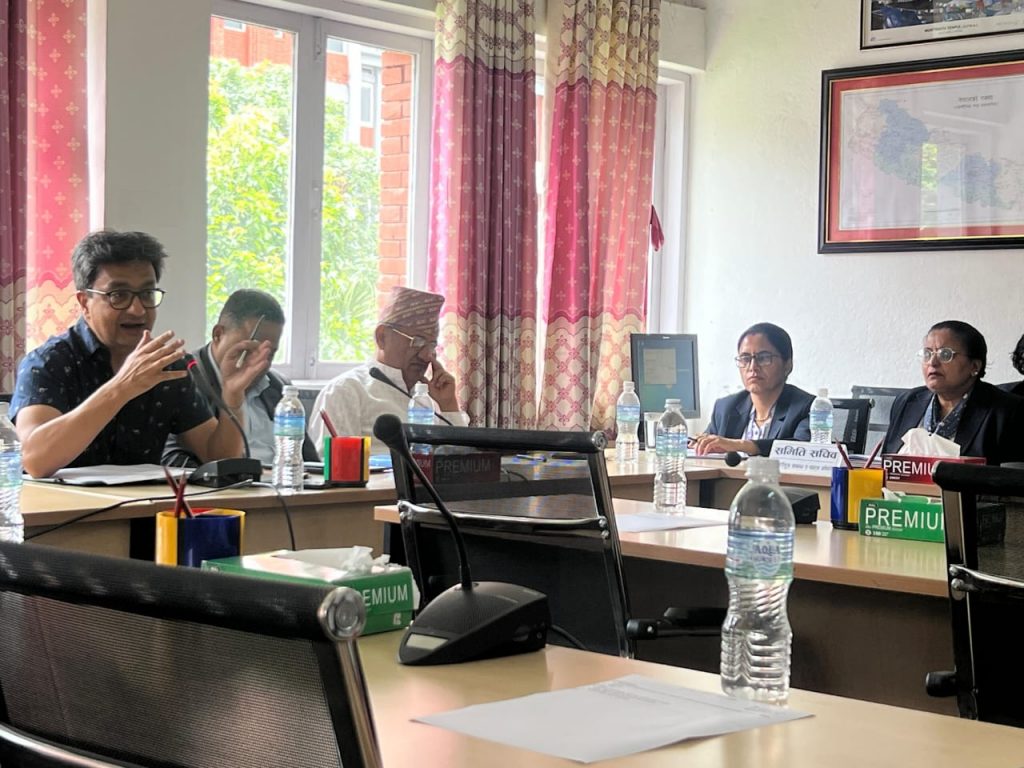
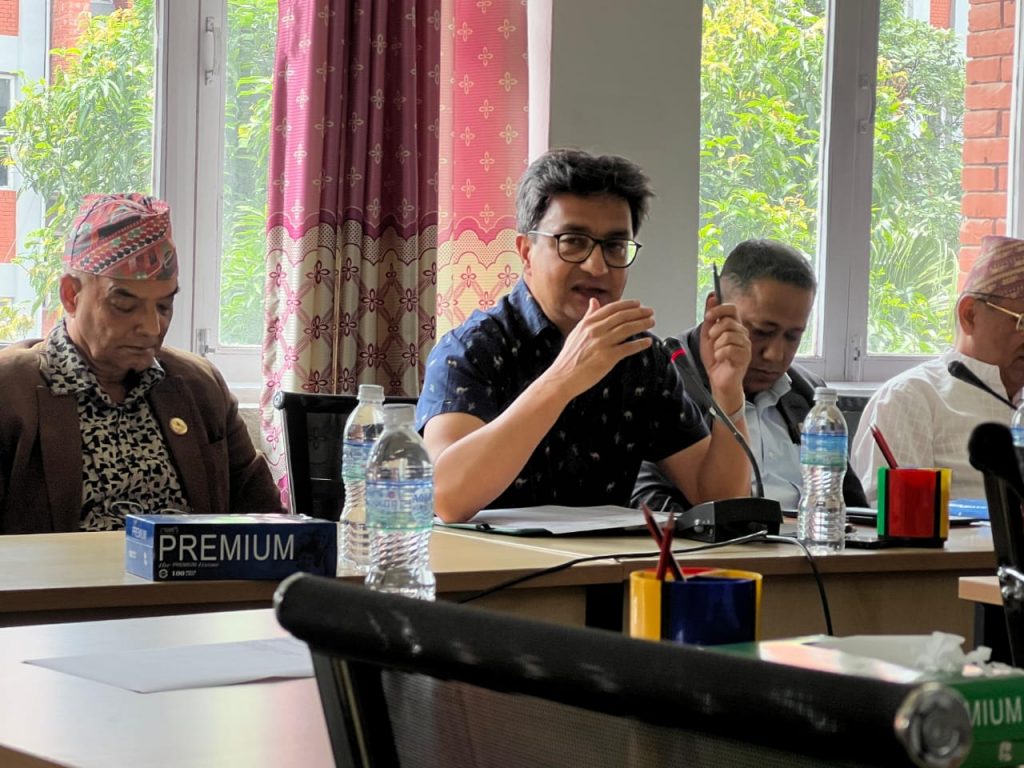
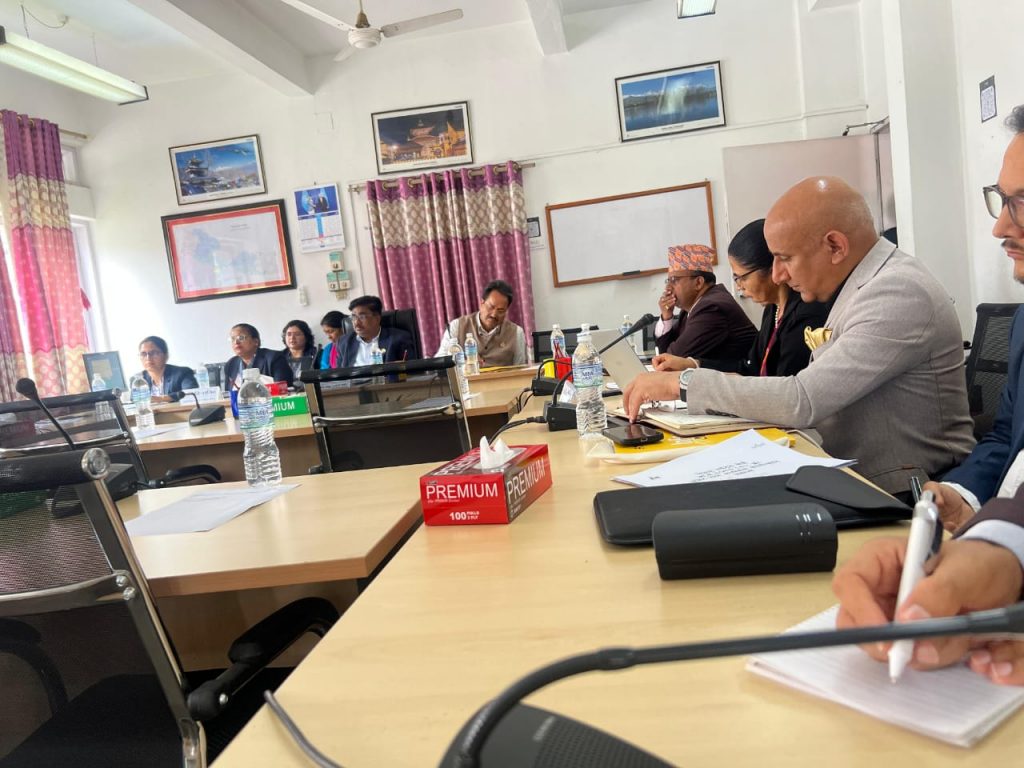
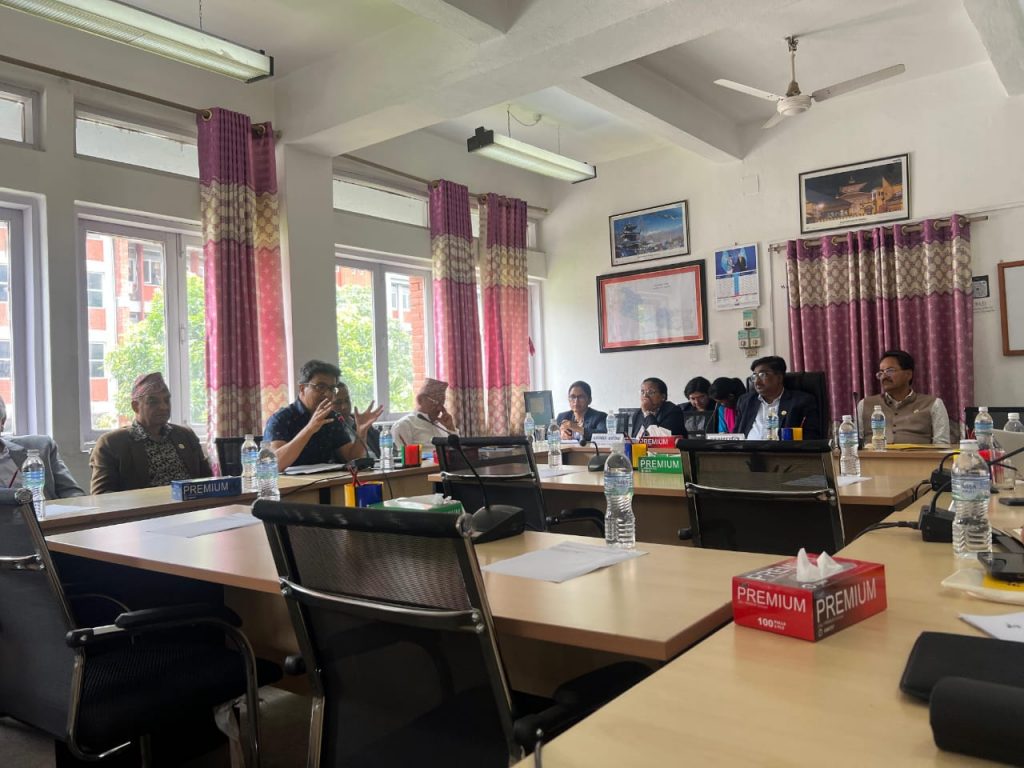
Download
Photos / Maps / Brochure ...- • CustomGallery
- • Visa Recommendation
- • Protocol
- • NTB bylaws and procedure
- • Enlistment Files
- • Placemat Designs
- • COVID-19 Safety & Hygiene Protocol for Tourism Industry
- • Forms
- • Curriculum & References
- • Booklets / Brochures
- • Logo
- • Map
- • Mountaineering in Nepal
- • Multimedia
- • Nepal Tourism Statistics
- • NTB Budget
- • Photos
- • Presentation / Documentaries / Montage
